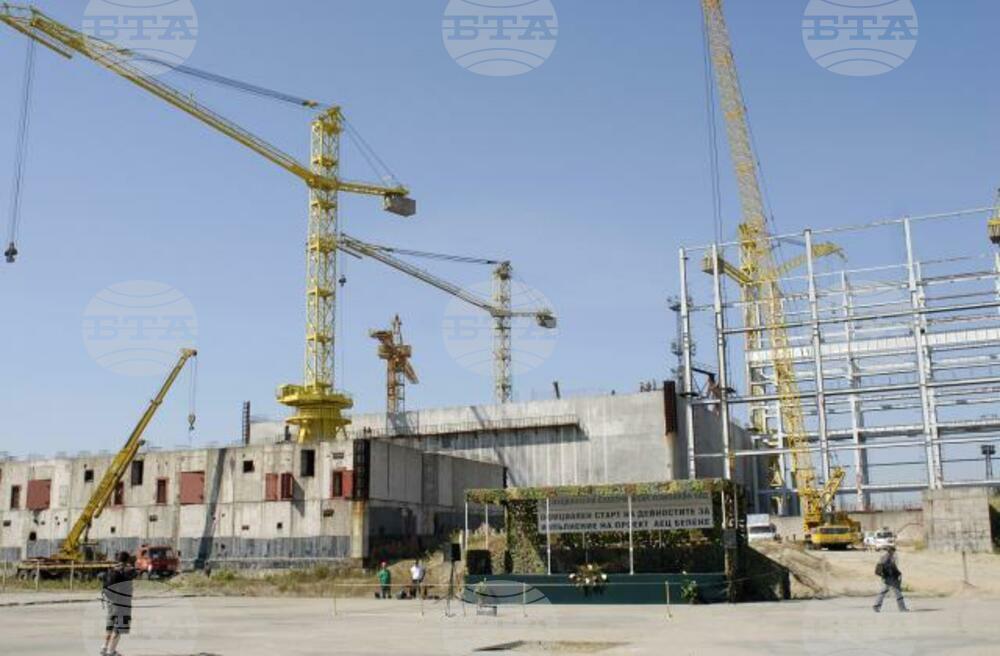site.btaUPDATED April 7, 2005: Stanishev Cabinet Gives Go-ahead to Belene N-Plant Construction, Project Is Abandoned 7 Years Later


Twenty years ago on April 7, the Sergei Stanishev Cabinet approved conclusively a proposal for the construction of a nuclear power plant on the Belene site, Northwestern Bulgaria. The project had been revived by a Council of Ministers Decision on December 19, 2004. Building formally began when first sod was turned on September 3, 2008 at a ceremony by Prime Minister Stanishev. Some construction work was done and equipment was purchased before the project was abandoned in March 2012 as unfeasible.
Following is the news item of BTA's External Service on the April 7, 2005 decision to resume the plant's construction:
Cabinet Takes Conclusive Decision on Construction of Belene N-Plant
Sofia, April 7 (BTA) - The Bulgarian Government Thursday approved conclusively a proposal for construction of a nuclear power plant on the Belene site (Northwestern Bulgaria). The new N-plant will have a maximum capacity of 2,000 MW, using an evolutionary project of a pressurized water reactor, Energy and Energy Resources Minister Miroslav Sevlievski explained to journalists. Construction of the N-Plant on the Belene site will start after obtaining the requisite authorizations and licences. Sevlievski said that the next stage of the project implementation was to invite competitive bids for a supplier and contractor of the new N-plant. The bidding procedure for selection of a contractor will be initiated between May 30 and June 10. The entire procedure is supposed to be completed within four months, but the realistic deadline is six months, the Energy Minister said. In any case, this will happen within the term of office of the new cabinet, he added. The Belene N-Plant project was revived by Council of Ministers Decision on December 19, 2004. The new facility will have two reactors, each of 600-700 to 1,000 MW capacity. The construction start target date was then set at mid-2005, and the commissioning target date at 2010. Construction for the original N-plant project on the Belene site began in 1987 but was discontinued in February 1990 for lack of funding. The project was first suspended by Parliament after ecologist protests in mid-1991 and then finally abandoned as "technically unsound and economically unviable" by Council of Ministers Decision on May 21, 1997. LS/LG
***
A Council of Ministers decree dated March 20, 1981 selected a 270.2 ha site across from largest Danube island, Belene, for construction of Bulgaria's second nuclear power plant.
Building works for the original N-plant project on the site began in 1987. It was initially planned to build four energy units with WWER-1000/V-320 reactors, developed by AtomEnergoProm (AEP) of Moscow. By 1990, part of the Unit 1 building was ready and more than 47,000 tonnes of equipment was delivered. Then works were discontinued in February 1990 for lack of funding.
The project was first suspended by Parliament after environmental protests in mid-1991 and then finally abandoned as "technically unsound and economically unviable" by a Council of Ministers Decision on May 21, 1997.
On December 19, 2002, the Council of Ministers adopted a decision to unblock the construction effort. BTA's Archives holds a news item on December 19, 2024 about the decision of the same date in 2002 to resume the plant's construction as well (see link).
Yet again, the project was revived by a Council of Ministers Decision on December 19, 2004.
On January 18, 2008, Bulgaria's Natsionalna Elektricheska Kompania (NEK) and Russia's AtomStroyExport concluded a final agreement on design, construction and commissioning of Belene Units 1 and 2 of 1,000 MW each at the cost of EUR 4 billion.
On October 3, 2008, Germany's RWE Power was selected as a strategic investor in the project but withdrew on October 28, 2009. In 2012, the Council of Ministers decided to stop the construction and the National Assembly backed that decision.
In 2013, a national referendum was held, asking citizens whether Bulgaria should develop nuclear power generation through the construction of a new N-plant. A majority 60.6% voted in favour of the Belene NPP, but the decision was not binding on the National Assembly because of a 20.22% voter turnout. The project was not re-launched.
In 2016, Bulgaria was ordered by an arbitration court to pay BGN 1,170 million to Russian contractor AtomStroyExport for two reactors it had already built for Belene. Since then, the government has been trying to revive the project.
Parliament abolished a moratorium on its construction in June 2018. In August 2019, seven companies, including two Bulgarian ones, entered bids for strategic investors, answering a call launched by the government. Three companies: Russia's Rosatom through its subsidiary AEP, the China National Nuclear Corporation (CNNC), and the Korea Hydro & Nuclear Power Co. Ltd., were invited to submit binding bids. Bids for sharing in the project's financial structuring and supply of turbines and other equipment came from France's Framatome and General Electric of the US. The investor selection procedure was suspended in 2020 amid the COVID-19 pandemic.
In October 2023, the Council of Ministers revoked previous government decisions on the construction of a Belene Nuclear Power Plant and its designation as a project of national significance. Parliament tasked the Energy Minister to negotiate with Ukraine on the sale of the Belene equipment still stored on site. The negotiations continue.
/LG/
news.modal.header
news.modal.text